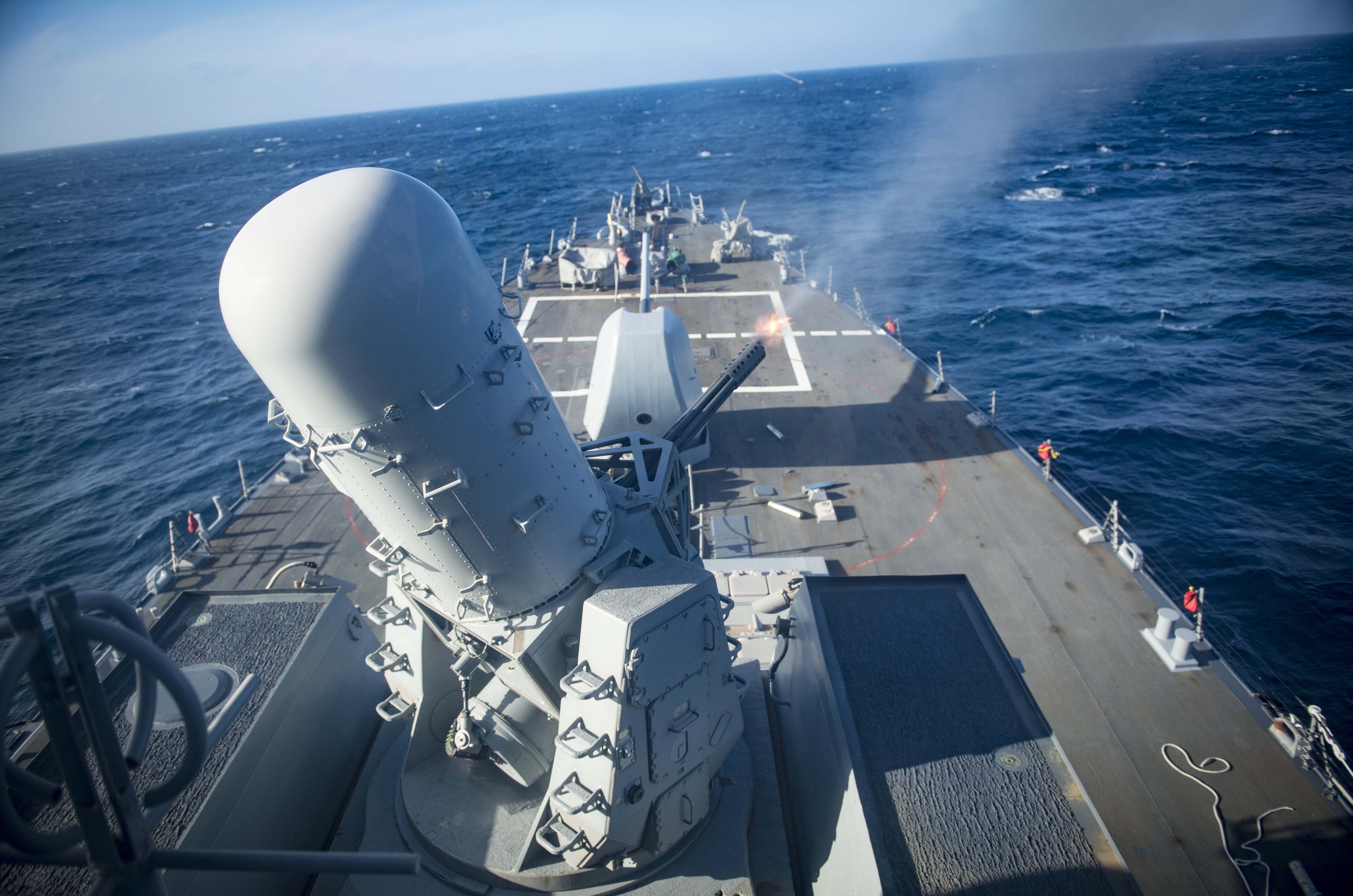A Houthi missile came within seconds of hitting an American destroyer in the Red Sea on Tuesday as U.S.-Houthi hostilities continue to escalate, according to CNN.
The USS Gravely shot down the missile with a rarely used defense system that only hits targets that have made it past longer range defenses, suggesting that other systems failed to stop it first. Previous Houthi strikes had been intercepted at least eight miles away from their target, while this attack reportedly came within a mile of the U.S. ship.
The incident is the first time the U.S. has ever had to use its close-range defenses to stop a cruise missile, according to Fox News.
So far, the Biden administration has stayed mum on how it would respond if a Houthi missile actually hit a U.S. vessel. But, as the Pentagon scales up strikes against targets in Yemen, the White House may be forced to make a decision sooner than it thinks.
American forces have shot down nearly 70 Houthi drones and 20 anti-ship missiles in recent months, according to the War Zone. The Houthis also now claim to be simultaneously firing multiple missiles at their target, raising the chances that one will make it through U.S. defenses.
And there is little reason to believe that the Houthis will stop their Red Sea blockade any time soon, especially if the Israeli war in Gaza continues apace. The militant group has dramatically bolstered its support within Yemen since it began the blockade, with some former enemies now handing over their weapons to the Houthis in a show of support. The group also seems to relish the chance to fight the U.S. directly after spending much of the last decade sparring with Washington via its Saudi proxy.
A successful strike with a cruise missile against a U.S. destroyer could do significant damage to the vessel, which costs roughly $2 billion to produce. Such an attack could also kill U.S. service members, a possibility that would dramatically raise the stakes of U.S. operations in the Red Sea.
A deadly strike by the Houthis would also boost hawkish voices advocating for decisive strikes against Iran and its proxies in the wake of the killing of three American soldiers in Jordan.
This helps to explain why many experts argue that the U.S. should simply stop fighting the Houthis. The Biden administration ought to “discontinue putting our fleet in harm’s way for [a] tertiary interest,” said Austin Dahmer, a national security adviser to Sen. Josh Hawley (R-Mo.).
Others have put it more bluntly. “Washington should start by recognizing that both its economic and national security interests are largely unaffected by Red Sea transit,” wrote Michael DiMino — a former CIA analyst and current fellow at Defense Priorities — in an article for RS. “Any multi-billion-dollar effort to fight a war in Yemen would render no political, economic, or security benefits to the United States.”
Meanwhile, lawmakers continue to express their frustration with the White House’s insistence that it can fight the Houthis without authorization from Congress. The administration says its strikes are defensive and fall short of real war, which means there is no reason to get congressional approval to move forward. But that explanation has failed to satisfy many in Congress, as Sen. Mike Lee (R-Utah) told RS earlier this week.
“The Biden administration’s pattern of engaging in offensive airstrikes without authorization and calling such actions defensive is a warped understanding of the interactions between the legislative and executive branch powers in war making,” Lee said.
- Houthis now drawing support from former enemies in Yemen ›
- Attacks on Red Sea shipping pay dividends for Yemen’s Houthis ›
- Are Houthi attacks doing that much damage to the world economy? ›
















